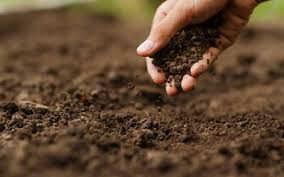×
The Standard e-Paper
Stay Informed, Even Offline

Partners in the agricultural sector convened to kick start a workshop for a scoping study seeking to identify key constraints that hinder the commercial rollout of a national liming program, verify how the lime product will be introduced into the market and develop a cohesive, impactful and scalable marketing strategy that will trigger and sustain significant farmer uptake. Mr. Henry Kinyua the Deputy Team Leader at the Kenya Soil Health Development Program noted: